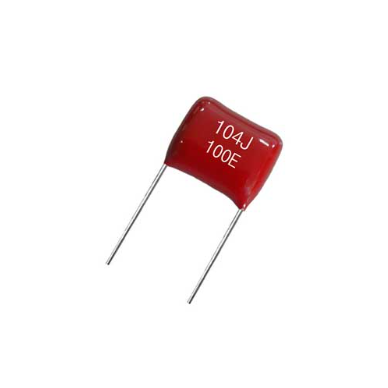Film capacitors, as important components in electronic devices, are widely used in various household appliances due to their excellent performance. Whether in air conditioners, refrigerators, or washing machines, you can find them in almost every family’s appliances. Howeve, beginners may encounter some difficulties when selecting and using film capacitors. Let’s learn how to avoid these common traps!
What are Film Capacitors?
Film capacitors are electronic components with multiple advantages:
- High insulation resistance
- Wide frequency response range
- Low dielectric loss
- Non-polarized
- Wide temperature range
- High voltage resistance
Common Misconceptions
1. Lack of Product Knowledge
Many people only know that film capacitors are a type of capacitor but know little about their working principles, performance parameters, and applicable scenarios. This knowledge gap easily leads to selecting inappropriate products.
2. Choosing Products That Don’t Meet Requirements
Different electronic products have different requirements for film capacitors. For example, some devices need high-frequency, low-loss film capacitors. If ordinary frequency, high-loss capacitors are used, the device performance may deteriorate or even fail to function properly.
3. Focusing on Price While Ignoring Quality
The quality of film capacitors in the market varies greatly. Some manufacturers use inferior materials to reduce costs, resulting in unstable product performance. If you only focus on price while ignoring quality when purchasing, you’re likely to buy problematic products.
4. Ignoring the Operating Environment
Although film capacitors have many advantages, they also have certain requirements for the working environment. Using them in high-temperature, humid, or corrosive gas environments will accelerate capacitor aging and damage, reducing their performance lifespan.
How to Avoid These Pitfalls?
Consult Professionals: If you’re unsure about which model of film capacitor to choose, describe your needs and application scenarios to an engineer who can provide appropriate recommendations.
Choose Reliable Sources: When purchasing, try to select reputable sellers and official channels.
Understand Product Parameters: Before use, carefully read the capacitor’s manual and parameter sheet to understand its operating environment and conditions.
Use Correctly: Strictly follow the instructions when using film capacitors to achieve their best performance and value.
By understanding this basic knowledge, even newcomers to electronics can avoid common mistakes when using film capacitors, allowing these small components to play their maximum role in our electronic devices.
This article is provided by JYH HSU (JEC) Electronics. JEC is a research, development, production, and sales-oriented company specializing in manufacturing and selling various electronic components such as capacitors and resistors.
Post time: Apr-02-2025

